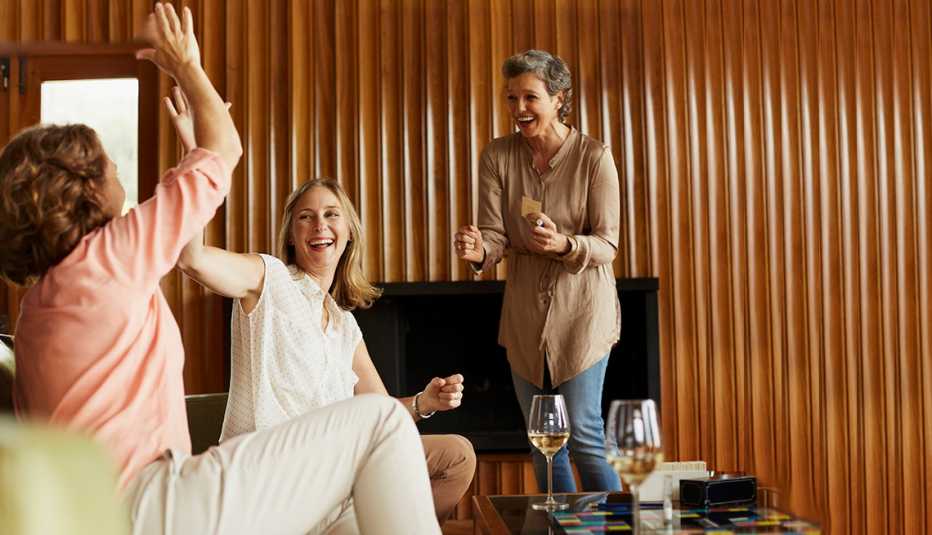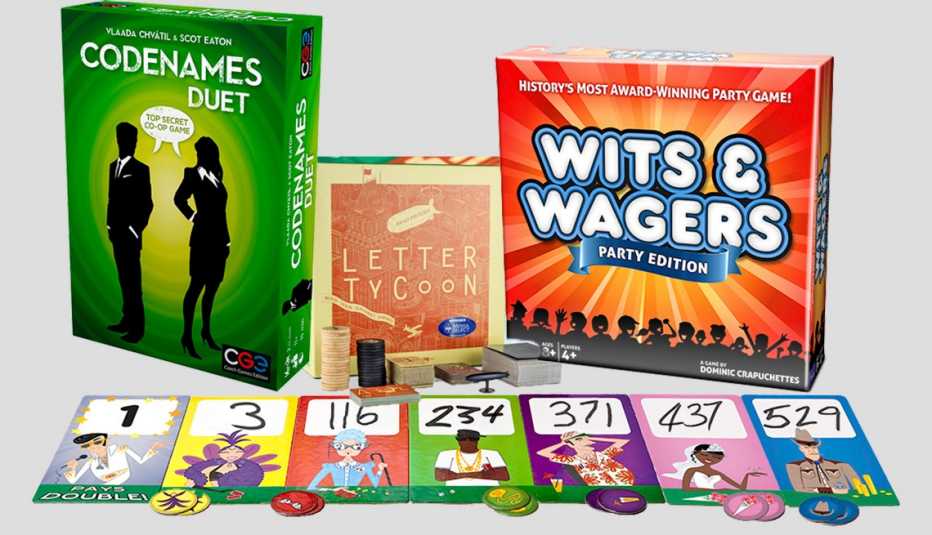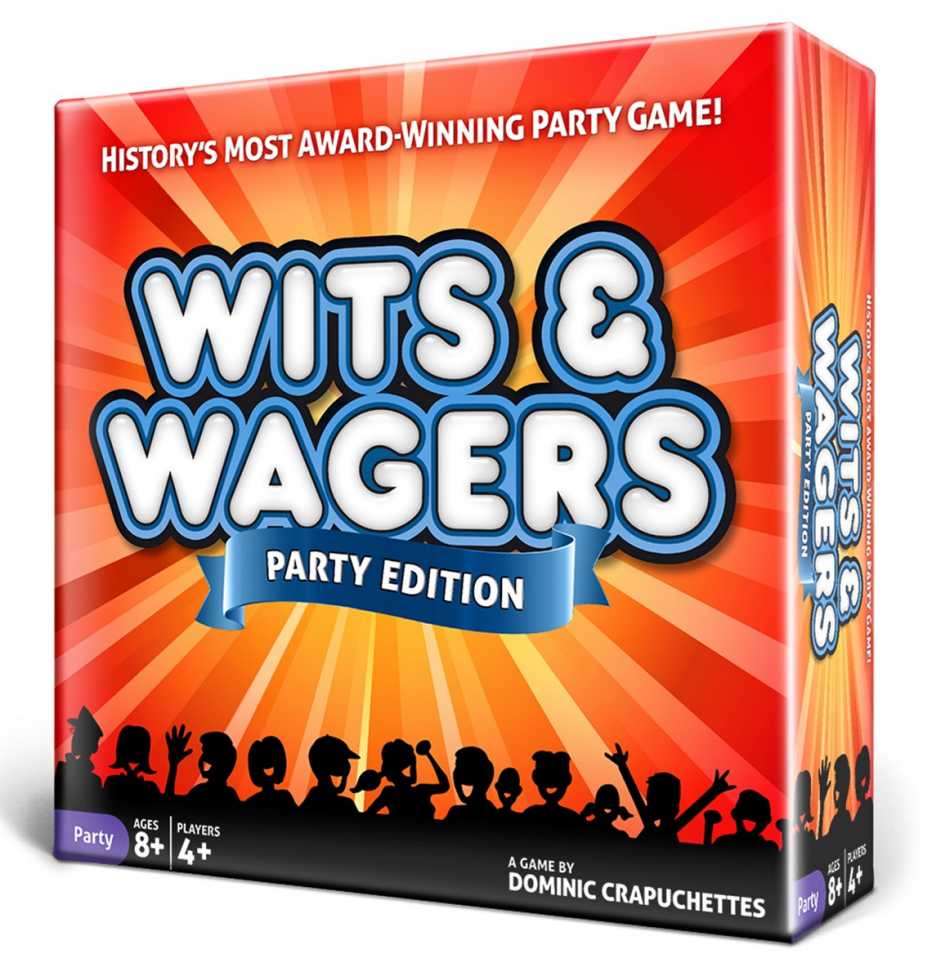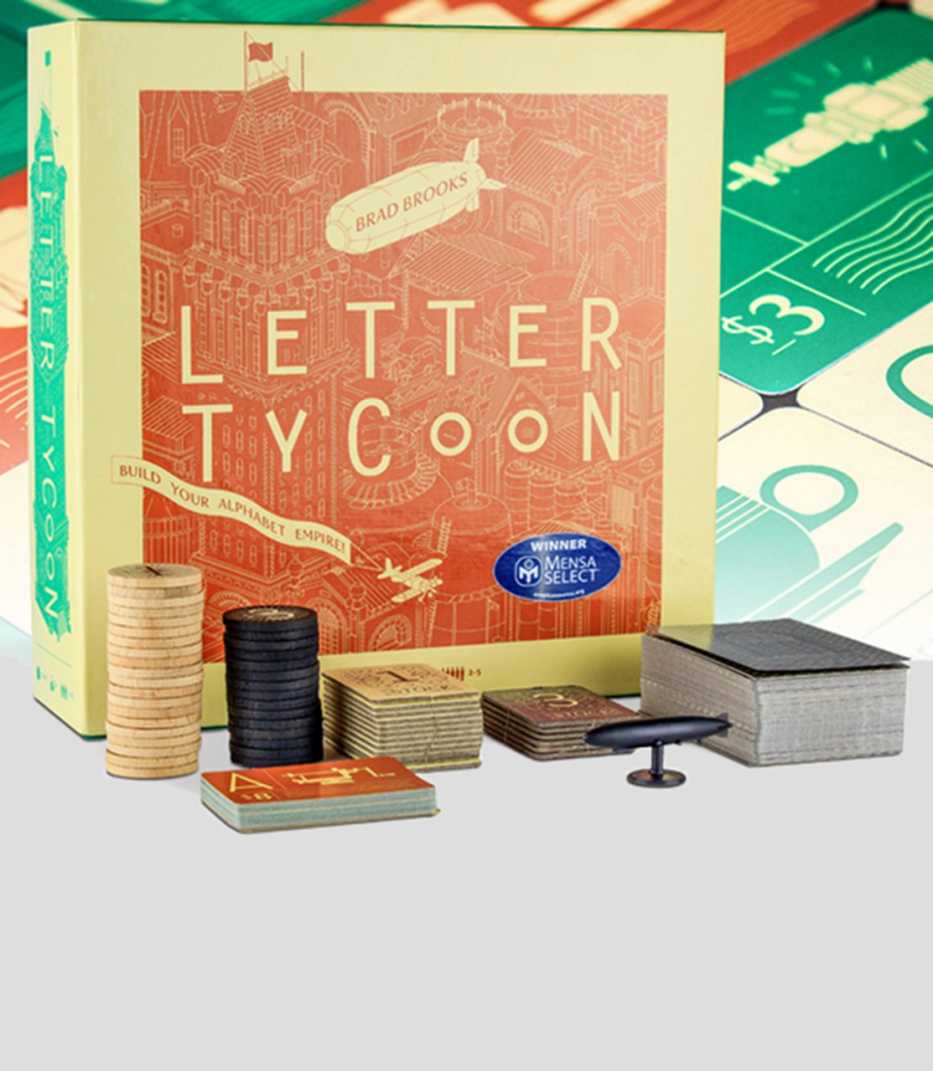Staying Fit


If you're tired of the typical dinner-and-a-movie social plans, why not rally a group for a game night? As a host, the responsibilities are delightfully minimal — drinks, chips and salsa can suffice — though you will need to choose a board game or two and to be able to clearly explain the directions to your guests.
As for the game itself, while you might want a standby like Scrabble or Pictionary on hand, an unfamiliar option may provide a little more diversion for the gathering as a whole. Because there are so many choices on the market now, we played nearly a dozen and asked a few experts to offer you a handful of new standouts (all available at Amazon.com) that may remind you of some of your favorite classics.


AARP Membership— $12 for your first year when you sign up for Automatic Renewal
Get instant access to members-only products and hundreds of discounts, a free second membership, and a subscription to AARP the Magazine.


If you like Cheat (or B.S.) you’ll love ... Skull
Players: 4+
Time: 15+ minutes
Cost: $15.99
“Skull is the game that killed poker for me,” says Michael James Heron, editor of Meeple Like Us, a game review website. “It gets rid of the card play and replaces it with pure, raw bluffing.” The goal is pretty straightforward: reveal flower cards and avoid skull ones while goading other players to land on skulls. If that sounds confusing, know that it takes about two minutes to get the hang of it and even less time to fall in love with it. There’s faking and mental trickery — prepare to get your game face on — in this this quick , portable game with surprisingly pretty cards.
If you like Trivial Pursuit, you’ll love ... Wits & Wagers


Players: 4+
Time: 20+ minutes
Cost: $34
Wits & Wagers has won dozens of awards and for good reason: As game researcher Joe Wasserman of West Virginia University says, it “provides a twist to the trivia game genre. Instead of one player trying to answer a trivia question correctly, all players answer each question and then place bets on whose answer is closest.” Think of it as similar to the bar game Quizzo with some carefree gambling thrown in.
If you like Scrabble, you’ll love ... Letter Tycoon


Players: 2-5
Time: 30+ minutes
Cost: $34
Using a seven-card hand, players take turns creating words while scoring “money” and rewards along the way. “Letter Tycoon is a true mashup of Scrabble and Monopoly,” explains Jon Freeman, a clinical psychologist who owns the board-game stores and cafes, the Brooklyn Strategist and Hex & Company. The game even has Mensa’s seal of approval, having won the “Mensa Select” award in 2015.


































































More on Home and Family
How to Throw an Easy, Elegant Dinner Party
6 practical tips for keeping calm — even on a weekday